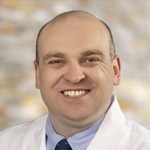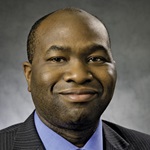Premier Health Heartburn and Reflux Institute
If you occasionally feel heartburn, a burning sensation caused by stomach acid when it backs up into your esophagus – the tube between your mouth and stomach – you may have acid reflux. In most cases, reflux is easily treated, posing minor health risks.
If you experience acid reflux more than twice a week, though, you could have a condition called gastroesophageal reflux disease (GERD). Untreated, GERD can cause complications, even raising your risk of cancer.
For more information or to make an appointment, call (844) 730-GERD(844) 730-GERD (4373).
Expert, Coordinated GERD Treatment
The Premier Health Heartburn And Reflux Institute offers you comprehensive care for reflux and GERD, provided by a multidisciplinary team of health care specialists in ENT (ear, nose and throat), gastroenterology, bariatrics, or weight loss, general surgery, and nutrition.
Heartburn and Reflux Institute experts work together to offer you a wide range of lifestyle, medication, and surgical treatment options.
GERD isn’t a life-threatening condition, but if left untreated can lead to more serious health issues and complications such as inflammation of the esophagus, which can lead to ulcers, an increased risk of esophageal cancer, and esophageal stricture, a narrowing of the esophagus, which can raise the risk of choking.
The Heartburn and Reflux Institute team provides the following services:
- Comprehensive Evaluation. Specialists perform a thorough digestive health assessment, including a physical and complete review of health history and prior diagnostic tests.
- Diagnostic Testing. Further tests as needed for full evaluation of the condition’s severity, such as esophageal pH monitoring, esophagram, high-resolution manometry, and a gastric emptying study.
- Disease Management and Treatment. After reviewing test results, specialists work with you and your primary and specialty care physicians to develop a personalized treatment plan. Treatment plans include education, support, and treatment options, and are designed to eliminate or reduce your risk of serious complications from GERD.
Heartburn And Reflux Institute Providers










The Connection Between Acid Reflux and GERD
Acid reflux and GERD are closely related, but not the same condition.
Acid reflux, also known as gastroesophageal reflux (GER), is the backward flow of stomach acid into your esophagus. During an episode of acid reflux, you might feel heartburn, a burning sensation in your chest. This can occur after eating a big meal or drinking coffee or alcohol.
Sometimes acid reflux progresses to GERD, a more severe form of reflux. The most common symptom of GERD is frequent heartburn — two or more times a week. Other symptoms can include:
- Regurgitation of food or sour liquid
- Difficulty swallowing
- Coughing
- Wheezing
- Chest pain, especially while lying down at night
- Hoarseness
- Asthma
- Bad Breath
- Sore throat
- Nausea
- Indigestion
- Difficulty sleeping
Treatment Options
Non-surgical options
Lifestyle changes can help resolve acid reflux and GERD. These include:
- Avoiding acid reflux and heartburn triggers such as coffee, alcohol, spicy food, fried or fatty foods, garlic, chocolate, peppermint, and citrus
- Losing excess weight
- Quitting smoking
- Not eating two to three hours before bedtime
- Eating several, smaller meals, rather than three large meals
- Raising the head of your bed
- Not wearing tight clothing around your abdomen
Over-the-counter medicines, such as antacids (like Tums) or H2 blockers (like Pepcid), also work to relieve acid reflux for many. If over-the-counter medicines don’t work for you, your doctor could recommend stronger prescription medicines, more testing, or surgery.
Surgical treatment options
The Heartburn and Reflux Institute offers these surgical options for GERD:
- Nissen fundoplication. This procedure strengthens the valve between the esophagus and stomach to improve the valve’s ability to stop acid from backing up into the esophagus.
- The LINX® Reflux Management System. This minimally invasive procedure places a flexible ring of small magnets around the esophagus, just above the stomach, to help prevent reflux. LINX is intended for patients diagnosed with GERD as defined by abnormal pH testing, and who are seeking an alternative to continuous acid suppression medication therapy .
- Hiatal/paraesophageal hernia repair. Surgical treatment of hiatal and paraesophageal hernias involves returning herniated organs into the abdominal cavity and repairing the enlarged opening in the diaphragm (hiatus) to prevent recurrence of the hernia.
Contact Us
When you need surgery, we’re here with experience and options. Our surgical teams are committed to providing you with effective, patient-focused care. See a list of our convenient locations or find a general surgeon.

